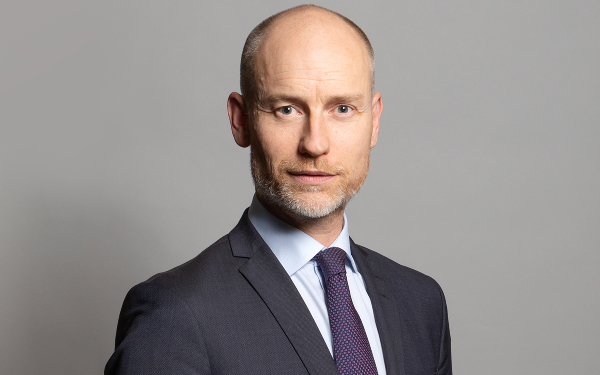
Photo: Monkey Business/Adobe Stock
The government has renewed funding to help overseas care staff who have lost work and are facing removal from the UK due to “unethical” employment practices or providers not complying with visa rules.
However, the Department of Health and Social Care (DHSC) has reduced the level of the international recruitment fund from £16m in 2024-25 to £12.5m this year, divided between 15 regional partnerships of English local authorities and care provider representatives, headed by a lead council.
The fund is designed to tackle the issue of staff coming to the UK to work in social care on skilled worker visas and having to leave their jobs, either due to exploitation or unethical practices or because employers have not complied with immigration rules.
Where Home Office agency UK Visas and Immigration (UKVI) finds non-compliance, it may suspend or revoke an employer’s licence to sponsor workers from abroad. While suspension prevents employers from hiring new staff from abroad, revocation means existing staff will lose their certificate of sponsorship, giving them 60 days to find a new sponsor or leave the country.
Increasing reports of staff exploitation
Between July 2022 and December 2024, the government revoked more than 470 sponsor licences from care sector employers, reflecting increasing reports of workers facing exploitation, including from watchdog the Gangmasters & Labour Abuse Authority (GLAA).
Many workers have reported being forced to work excessive hours with the threat that their sponsorship would be cancelled, said the GLAA.
Others were forced to pay off debts resulting from excessive fees charged to secure work, or reported not being properly paid, living in unsuitable conditions while being charged high accommodation fees and, in some cases, being offered no work at all.
It is not clear how many overseas staff have been affected by exploitation or visa non-compliance, but last year, the then Conservative government tasked the regional partnerships with providing pastoral support to affected workers and finding them new jobs. This included setting up a mailbox for care workers to contact should they require assistance.
New roles found for some overseas care workers
Between July 2024 and February 2025, about 8,800 people contacted regional partnerships for help, of whom about 550 had been found new roles, said care minister Stephen Kinnock, in a recently published response to a parliamentary question.

Stephen Kinnock (photo: Richard Townshend Photography)
However, he said that neither the DHSC nor UKVI had verified the data and that, in some cases, regional partnerships were supporting care workers not affected by sponsor licence revocation.
Earlier this month, the government tightened immigration rules by requiring English providers to first seek to recruit from the pool of displaced workers before bringing new staff in from abroad, a policy now backed by the renewed international recruitment regional fund.
DHSC wants ‘significant increase’ in employment of displaced staff
Compared with 2024-25, the aims of the fund in 2025-26 are more tightly focused on finding new roles for displaced staff, as well as tackling unethical practices by some employers.
The DHSC said it wanted partnerships to:
- Significantly increase the number of displaced staff accessing support and “finding new, ethical, sponsored employment”.
- Substantially increase the number of providers engaging with them and raise awareness of the pool of workers available to support their workforces.
- Improve intelligence sharing regarding international recruitment to inform and support UKVI and other enforcement bodies “to clamp down on unscrupulous providers”.
How partnerships can use £12.5m in funding
As well as providing a mailbox for care workers to contact, the department suggested partnerships could provide an employment support service, either through local authorities or an external organisation, to facilitate introductions with employers and help staff with CV writing and interview skills.
It also suggested maintaining a register of ethical providers, not limited to those who have previously sponsored overseas workers.
They will be expected to collect monthly metrics on the number of staff securing new sponsorship and contacting mailboxes for support, and the number of providers engaging with them, and report to the DHSC on the impact and use of the fund.
Growing use of overseas staff ‘a significant success’
Association of Directors of Adult Social Services (ADASS) regional lead trustee Martin Samuels said the significant growth in the number of overseas workers in adult social care, since the relaxation of immigration rules in 2021, had largely been a “significant success”.
“Lots of parts of the country are benefiting from really high-quality workers,” he said.
However, one adverse impact was that some organisations had wrongly been given licences to sponsor overseas staff,” he added.
Samuels, executive director of adult care and community wellbeing at Lincolnshire council, said: “It’s been a combination of some illegitimate organisations getting through, some not competent organisations getting through and just not realising the complexities of employing international workers, and some cases where the organisation wanted to work in a particular way but then only realised that that wasn’t within the rules.”
Lack of data on affected migrant care workers
He said the sector had faced a “steady stream” of cases of UKVI suspending or revoking sponsorship licences.
However, while UKVI told councils which organisations had had licences revoked and how many certificates of sponsorship they held, this did not tell them how many staff were affected.
“I think about 3,000 certificates have been cancelled in the East Midlands,” he said. “That might be 500 people who have found themselves repeatedly working for organisations where the licences had been cancelled or it might be 3,000 people.”
Samuels said UKVI had provided the East Midlands partnership with the email addresses of displaced staff where this was known, and it made two or three attempts to contact them and offer support, with about a 20% response rate.
“What we don’t know is whether the 80% are real people, or have quickly found themselves a job through another employer or they are disappearing into the undergrowth or are victims of modern slavery,” he added.
Supporting staff to find work
He said the East Midlands partnership had co-ordinators in each of the region’s geographical patches who worked with providers to find new roles for the staff.
The partnership was also supporting workers to improve their English, become more accustomed with local customs and get a UK driving licence, where these were barriers to them finding roles, work that was being replicated across the other regions, Samuels added.
He said the £12.5m in funding for 2025-26 was sufficient and praised the DHSC for the support it was providing the sector on this issue.
Union urges revamp of sponsorship system
For UNISON, head of social care Gavin Edwards said: “International recruits providing care in the UK shouldn’t need protection from exploitation, fraud and mistreatment at work.
“Regional support hubs set up by the previous government have been slow to establish, and the quality of help and advice has sometimes been patchy. But they’re providing a vital service that must continue.”
However, he said there needed to be wider reform of the visa system, so sponsorship was sector-wide and managed by the government, adding: “Care workers wouldn’t then be dependent on one employer, and rogue providers couldn’t threaten them with dismissal or deportation.”
Provider representative body Care England’s chief executive, Martin Green, said: “We regard the development of these regional partnerships as positive because we must ensure that colleagues who have come from overseas are supported if they lose their current roles.”







